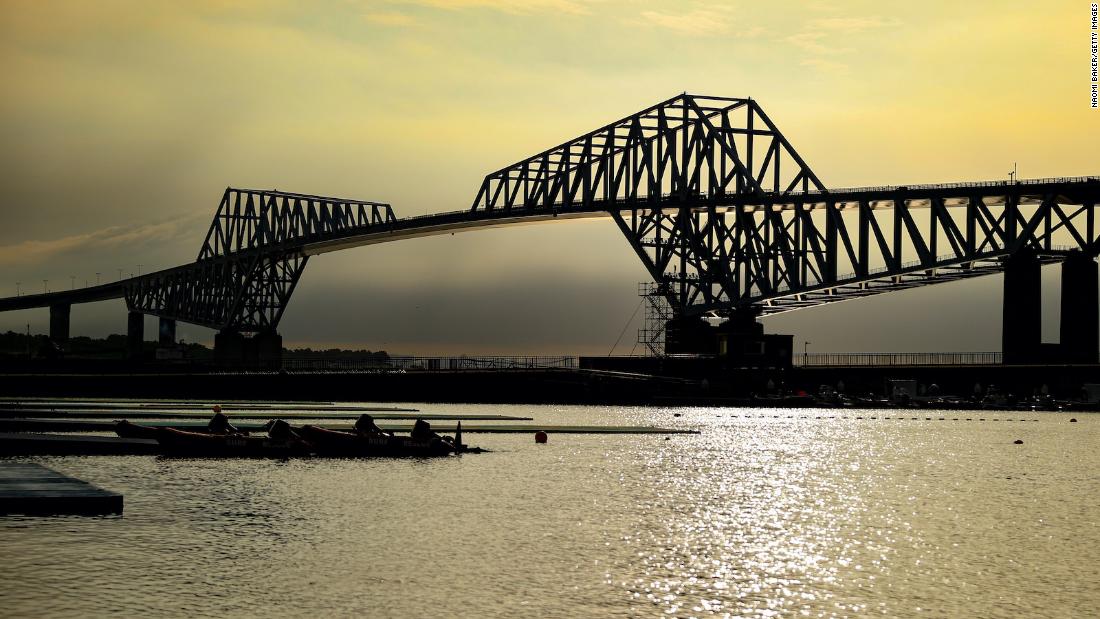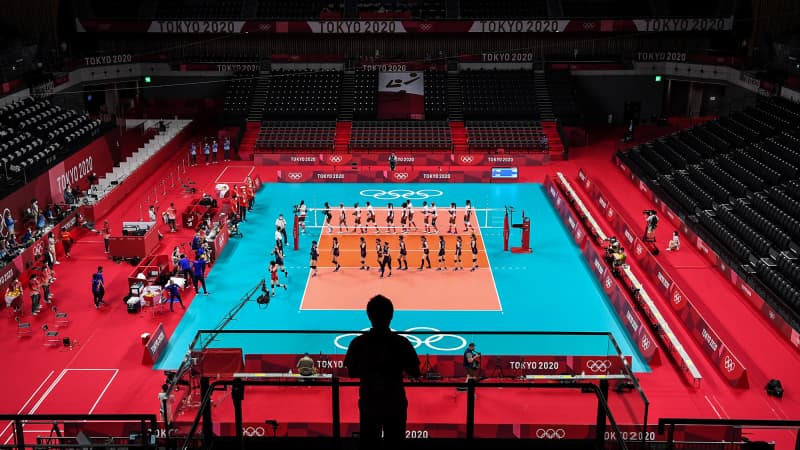(CNN) — There’s nothing like watching the Olympics on TV to give you a major case of wanderlust.
Despite the mostly empty stadiums — spectators were banned — athletes from around the world have still been able to awe us, and with the beautiful scenery of Japan as backdrop.
Greater Tokyo
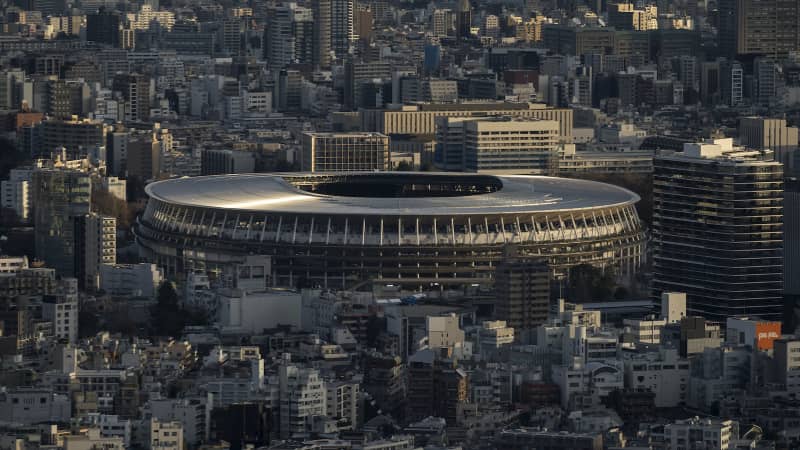
Tokyo’s National Stadium, seen from the Shibuya Sky observation deck at the Shibuya Scramble Square building.
Tomohiro Ohsumi/Getty Images
The majority of the Olympic and Paralympic events are being held in and around the capital.
But part of Tokyo’s pitch to the International Olympic Committee (IOC) was that most of the new structures made especially for the Games would remain in use afterward to benefit the people of Japan.
Japan National Stadium
This venue in Tokyo’s famed Shinjuku area is the host of both the Olympics opening and closing ceremonies as well as most track and field events. It replaced an earlier national stadium, which was demolished in 2016.
World-renowned architect Kengo Kuma, who is also an architecture professor at the University of Tokyo, designed the new icon, which was intended to be the centerpiece of the Games.
The stadium can hold 68,000 people and is made of wood brought from 46 of Japan’s 47 prefectures.
For great views of the stadium, head for the Shibuya Sky observation deck at the Shibuya Scramble Square building.
Ariake Arena
Located in southwest Tokyo, this sleek building hosted all of the volleyball matches during the Tokyo 2020 Olympics.
Team USA made history there on Sunday, when the women’s volleyball team beat Brazil for the gold medal on the final day of the Games.
Once the Games are over, the arena will serve as a local community center and as an event venue that can hold upwards of 12,000 people.
Musashino Forest Sport Plaza
This arena in Chofu, in the western suburbs of Tokyo, was the first purpose-made Tokyo Olympics venue to be completed.
Bonus: it’s also a short walk away from the Studio Ghibli Museum.
Tokyo Aquatics Centre
Built specifically for the 2020 Games, the Tokyo Aquatics Centre is located inside the Tatsumi-no-mori Seaside Park, a popular green space where locals can play mini golf or simply enjoy the changing autumn leaves.
As the name implies, many water-centric sports like diving and swimming were held here during the Games, with plenty of history making moments taking place.
She has now won 10 medals across three Olympic Games.
After the Olympics, the Tokyo Aquatics Centre will continue to host events and will also function as a swimming facility for Tokyo residents.
Sea Forest Waterway
Home to the rowing and canoeing events, this course was specially built in the canals between two man-made islands in Tokyo Bay.
After the Games, it will continue to host international rowing and canoe competitions and will be open to the public as a recreation area.
Visitors will know they’re getting close when they see the dramatic Tokyo Gate Bridge at the end of the course, a constant sight on screens during this year’s Games.
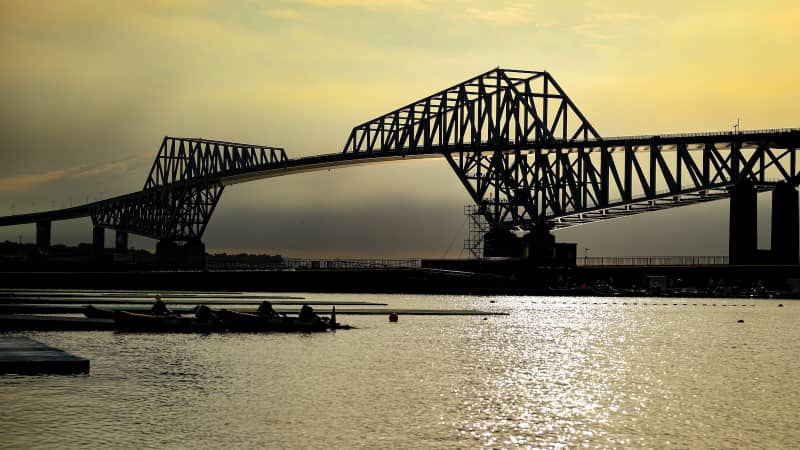
A view of Tokyo Gate Bridge on day five of the Tokyo 2020 Olympic Games at Sea Forest Waterway.
NAOMI BAKER/Getty Images
Oi Hockey Stadium
The striking, angular venue for field hockey — the electric-blue artificial turf looks as cool in real life as it does on TV — is inside the Oi Central Seaside Park Sports Forest alongside the Sumida River.
Locals love this park for its sunset views.
Officials say the venue — built specifically for the Olympics — will be used for hockey, futsal and other sports after the 2020 Games.
Nippon Budokan
The judo venue in Chiyoda ward was custom-built for the Tokyo Olympics — just not this Tokyo Olympics.
Usually just referred to as the Budokan — which means Martial Arts Hall — it was constructed in 1964, the first time Tokyo hosted the Games.
Since then, it’s also become a popular place for musicians to perform when they come to Japan.
At this year’s Games, it holds the honor of being the site of karate’s Olympic debut.
The Olympic and Paralympic Athletes’ Village
Built across 33 acres in Tokyo’s Harumi district, the Athletes’ Village will have a new life once the sporting events are over.
According to an Olympics spokesperson, there will be 5,650 residential units up for sale.
Beyond Tokyo
Tsurigasaki Surfing Beach
Surfing made its first-ever appearance at the Tokyo Olympics, with Tsurigasaki in neighboring Chiba prefecture chosen as host due to its natural waves and close proximity to Tokyo.
Tsurigasaki is already massively popular with surfers from Japan and around the world and has plenty of hotels, restaurants and surf shops for those who want to plan their own surfing holiday when Japan reopens its borders to tourism.
Makuhari Messe
Tae kwon do, wrestling and fencing were among the events held in Makuhari Messe during the 2020 Tokyo Summer Olympics.
This conference center in Chiba prefecture regularly hosts global events, whether that’s a Lady Gaga concert or a giant Pokemon card swap.
Enoshima Yacht Harbor
First built for the sailing events at the 1964 Tokyo Games, the Enoshima Yacht Harbor in Kanagawa prefecture did the honors again this year.
It’s also where the Olympic cauldron was stored ahead of the Opening Ceremonies.
After the Games, it will continue to serve as a destination for water sports enthusiasts.
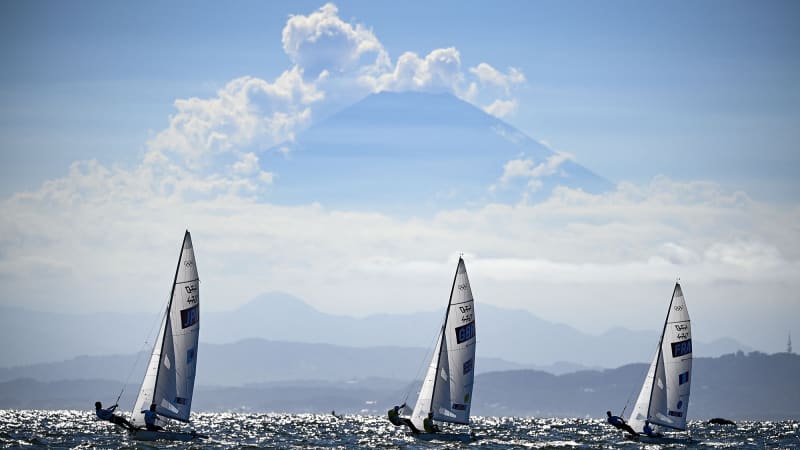
On a clear day, sailors can see past Mount Fuji from the Enoshima Yacht Harbor.
Olivier Morin/AFP/Getty Images
Saitama Super Arena
Boasting a convertible dome, the striking Saitama Super Arena is one of Japan’s largest multipurpose venues, hosting concerts, conferences and many other events in addition to sports.
Saitama Stadium
As the biggest soccer stadium in Japan, Saitama Stadium was the logical place to hold the Olympic football games — it hosted the 2002 World Cup.
After the Games, Saitama Stadium will continue to host major football matches.
Yokohama Baseball Stadium
Baseball is big business in Japan, and the 2020 Olympics marked the return of softball and baseball as official events.
After a 13-year hiatus, baseball is returning to the Olympics — although no fans will be there to witness it. For the prefecture of Fukushima, that absence is felt even more.
J-Village National Training Center (Fukushima)
The theme of the Tokyo Olympics was “the recovery Games.”
To honor that, the Olympic torch relay began at the J-Village National Training Center in east Fukushima, which was the base of operations for the first responders who came here following the devastating earthquake and tsunami in 2011.
Located in northeast Japan’s Tohoku region, it has since been converted into a community center and sports training venue.
Sapporo Odori Park
On Japan’s northernmost island of Hokkaido, Sapporo Odori Park is a popular destination thanks to its annual winter festival.
Fun fact: Sapporo hosted the Winter Olympics in 1972 — and is bidding to do so again in 2030.
Additional reporting by CNN’s Karla Cripps, Jill Martin, George Ramsay, Ben Morse, Homero De La Fuente and Jacob Lev.
